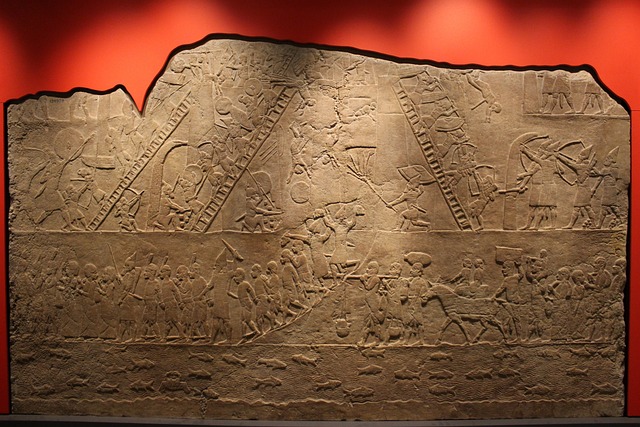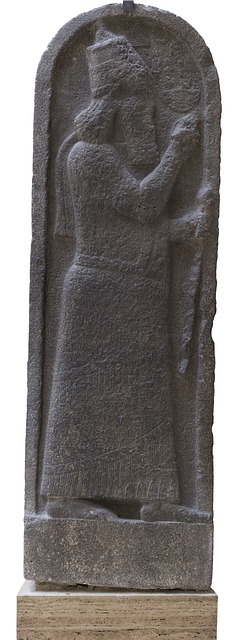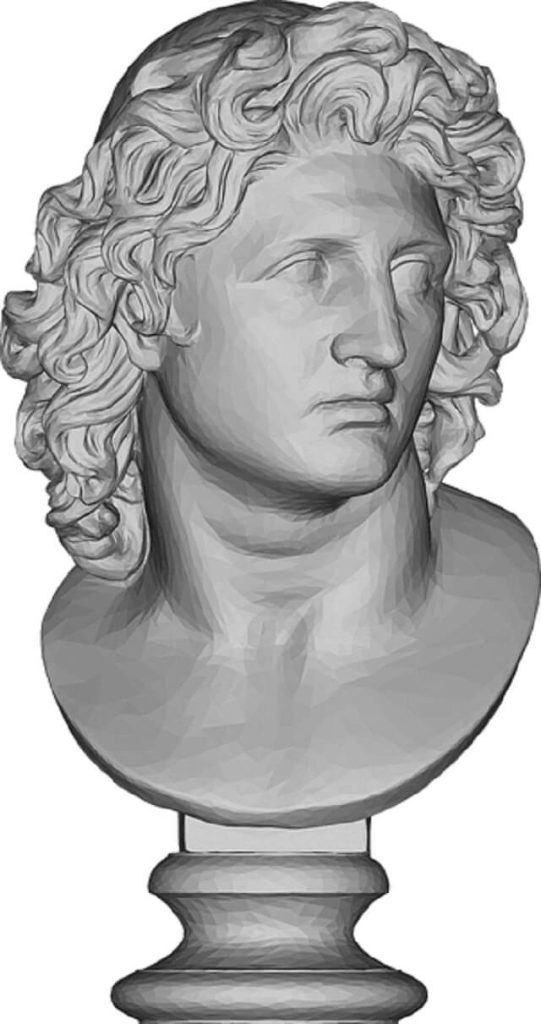Mesopotamia was an ancient Civilization that existed in the region of the world that is now Modern-day Iraq. It was one of the world’s first Civilizations, Emerging around 4000 BCE. The Mesopotamia Civilization Renowned for making numerous contributions to human Civilization, including Inventing the wheel, Developing writing systems such as Cuneiform, Creating great Literature like the Epic of Gilgamesh, and making Advancements in Agriculture, architecture, and Irrigation.
The Mesopotamians also known for their complex religious beliefs and worship of a Pantheon of gods and Goddesses. The rise and fall of several great empires, Including the Akkadian Empire, the Babylonian Empire, and the Assyrian Empire, marked the political history of Mesopotamia.
Despite its Historical Significance, the Mesopotamian Civilization eventually Declined and disappeared over time, and much of its knowledge and Cultural achievements were lost. Today, the legacy of the Mesopotamian Civilization continues to influence modern society, and its achievements are studied by Historians and Archaeologists worldwide.
Mesopotamia Civilization Begins:
The Civilization of Mesopotamia is Generally believed to have begun around 4000 BC, although some Scholars believe it could have started earlier. The exact date is difficult to determine because of the limited Archaeological evidence available and the lack of written records from this period. The Existing evidence, however, Indicates that the people of Mesopotamia had already Established themselves well and had developed complex systems of writing, religion, and Governance by 4000 BC.
Who Ruled the Mesopotamia Civilization?
Several different Civilizations and empires ruled the Civilization of Mesopotamia throughout its history. Some of the most notable Civilizations and empires that ruled over Mesopotamia include:
Sumerians:
The first Civilization in Mesopotamia, the Sumerians, emerged around 4000 BC and Established City-States ruled by a king.

Akkadian Empire:
Around 2334 BC, the Akkadian Empire, led by the Legendary king Sargon the Great, Conquered the City-States of Sumer and Established a Centralized empire that controlled much of Mesopotamia.
Babylonian Empire:

The Babylonian Empire, which rose to power in the 18th century BC, was one of the most powerful empires in Mesopotamian history. It was ruled by powerful kings, such as Hammurabi, best known for his code of laws.
Assyrian Empire:
The Assyrian Empire was one of the most powerful and Influential empires in Mesopotamian history. It was known for its military prowess and its Sophisticated System of Governance.

Achaemenid Empire:
The Achaemenid Empire, Founded by the Persian king Cyrus the Great, Conquered Mesopotamia in the 6th century BC and ruled the region until the arrival of Alexander the Great in the 4th century BC.
Here are the Characteristics of Mesopotamia Civilization:
The Civilization of Mesopotamia, which existed in the region that is now Modern-day Iraq, had several unique Characteristics that set it apart from other ancient Civilizations. Some of the key Characteristics of Mesopotamian Civilization include
Agriculture:
Mesopotamians were among the first people to develop a system of Irrigation that allowed them to Cultivate crops in the fertile land between the Tigris and Euphrates rivers.
Writing:
The Mesopotamians invented the world’s first writing system, Cuneiform, which they used to record laws, history, and religious texts.

Architecture:
The Mesopotamian architecture was known for its impressive brick buildings, including the famous Ziggurat structures.
Religion:
Religion played a central role in Mesopotamian society, and the people Worshipped a Pantheon of gods and Goddesses, each with unique Attributes and Responsibilities.
Trade:
Mesopotamia was located at the Crossroads of important trade routes, and the Civilization became a hub for Commerce and trade with other cultures.
Governance:
The Mesopotamians developed one of the world’s first systems of Governance, with cities ruled by powerful kings and a complex Bureaucracy.
Science and technology:
The Mesopotamians made important contributions to fields such as Mathematics, Astronomy, and medicine, and their Innovations had a lasting impact on Western Civilization.
Who founded the Mesopotamia Civilization?
The Civilization of Mesopotamia was not founded by a single person but emerged over a long period through the efforts of many different peoples and cultures. Mesopotamia is often Referred to as the “cradle of Civilization” because it is one of the Earliest regions where human Civilization developed.
The Sumerians are often Credited as the first people to Establish a Civilization in Mesopotamia, with evidence of their Civilization dating back to around 4000 BCE.
However, many other peoples lived in the region before and after the Sumerians, including the Akkadians, Babylonians, Assyrians, and others, who also Contributed Significantly to the development of the Mesopotamian Civilization.
The Emergence of Mesopotamian Civilization:
The Emergence of the Mesopotamian Civilization was a gradual process that took place over several Millennia. The region known as Mesopotamia, located between the Tigris and Euphrates rivers in Modern-day Iraq, was home to many different cultures and peoples throughout history.
The first known Civilization in Mesopotamia was that of the Sumerians, who lived in the region around 4000 BCE. The Sumerians developed a writing system that allowed them to record their laws, traditions, and religious beliefs. They also built complex cities and Irrigation systems and were skilled in Metalworking, weaving, and Agriculture.
Over time, other cultures, such as the Akkadians, Babylonians, and Assyrians, emerged and made significant contributions to the development of the Mesopotamian Civilization. These cultures built upon the achievements of the Sumerians and further developed Agriculture, trade, writing, art, and architecture.
They also created powerful empires that Conquered other peoples and Expanded the reach of the Mesopotamian Civilization.
The Mesopotamian Civilization eventually Declined due to various factors, including Invasions by outside forces, internal conflicts, and Environmental challenges such as Droughts and floods. However, its legacy continued to influence later Civilizations in the region and beyond. Many of its achievements in Mathematics, Astronomy, and Iiterature are still recognized and studied today.
How was Agriculture important in Mesopotamia?
Agriculture extremely important in Mesopotamia, as the Region’s Geography and climate were Well-suited to farming. The fertile soil in the region, which created by the Periodic Flooding of the Tigris and Euphrates rivers, made it possible to grow crops such as wheat, barley, and other grains.
The development of Agriculture in Mesopotamia allowed the population to grow, as it became possible to support larger Communities with food Surpluses. This led to the development of complex Societies and Civilizations, as people could Specialize in different trades and skills.
For example, some people became Merchants, Metalworkers, or Artisans, which helped to create a diverse economy.

To Irrigate their fields and manage the Floodwaters of the rivers, the people of Mesopotamia developed Sophisticated system of canals and dikes. They also developed Technologies such as the plow and the sickle to make farming more Efficient
The success of Agriculture in Mesopotamia also led to the development of cities and the rise of powerful empires. City-states such as Ur Uruk, and Babylon became centers of trade, culture, political power, and cities often controlled vast Territories through their control of the food supply.
The Agricultural surplus also enabled writing development, as people needed to keep track of crops, taxes, and other Economic activities.
In summary Agriculture was critical factor in development of Mesopotamian Civilization it allowed for the growth of complex Societies and diverse economy and culture.
The Irrigation System in Mesopotamia Civilization:
The Irrigation system was a critical Component of the Mesopotamian Civilization. The region between the Tigris and Euphrates rivers known as”Fertile Crescent” because Periodic Flooding of rivers created for Agriculture.
Mesopotamians could harness the power of these floods by Developing a Sophisticated Irrigation system. The Mesopotamian irrigation system made up of a network of canals and dikes. These used to control water flow from the rivers to the fields.
The canals also lined with clay to prevent water from seeping into ground and to protect the canal walls .
The dikes built along the banks of rivers and canals to prevent Flooding keep the water flowing in desired direction. They Typically made from mud and Reinforced with bundles of reeds or wooden stakes.

The Irrigation system was a major factor in the success of the Mesopotamian Civilization. By Controlling the flow of water, the Mesopotamians could grow crops Year-round and produce Surpluses of food. This allowed for the development of complex Societies, including the rise of cities and the growth of trade and Commerce.
The Irrigation system also played role in development of writing and Mathematics.People needed to keep track of crops and taxes.
The Irrigation system was critical component of Mesopotamian Civilization, it allowed the development of Agriculture and growth of complex Societies.
The Mesopotamians Ingenuity Harnessing the power of rivers through their Irrigation system Testment to their remarkable Technological and Engineering Abilities.
How did the Mesopotamia Civilization end?
Mesopotamia, a region located in the eastern Mediterranean, was home to one of the world’s Earliest Civilizations. The Mesopotamian Civilization known for its advanced writing system, impressive architecture, and Innovative Technologies.
However, like many other ancient Civilizations, Mesopotamia eventually fell into decline and disappeared. In this article, we will explore the factors that led to the end of this great Civilization.
Factors that led to the decline of Mesopotamia Civilization:
Mesopotamia Civilization-Environmental factors:
The Mesopotamian Civilization heavily relied on agriculture for sustenance. The fertile land provided by the Tigris and Euphrates rivers made this possible. However time region became Increasingly arid and the rivers to shift course leading Decrease in Availability of water for Irrigation.
This led to a decline in Agricultural production and Ultimately Weakened the economy and social structures of the Civilization.
Mesopotamia Civilization-Political Instability:
The Mesopotamian Civilization Characterized by a Succession of empires and kingdoms, each with its own ruling elite. However, this led to political Instability, with Frequent wars and Invasions Weakening the Civilization.

The rise of Persian Empire and Conquests of Alexander Great Destabilized. The region leading to decline in Mesopotamia’s political, military power.
Economic factors:
As Agricultural production Declined, the Mesopotamian economy became Increasingly reliant on trade. However, this too affected by the political Instability of the region. As a result the Emergence of new trade routes. The rise of the Silk Road weakened Mesopotamia’s importance as a center of trade. This further weakened the civilization’s economy.
Mesopotamia Civilization-Social factors:
The Mesopotamian Civilization Characterized by a rigid social Hierarchy, with the ruling elites Controlling most of the wealth and power. This led to social unrest and Inequality, with the lower classes becoming Increasingly Dissatisfied with their position in society. This, in turn, Weakened the social structures of the Civilization and made it more vulnerable to Collapse.
Conclusion:
In conclusion, the Mesopotamian Civilization is a significant contributor to human history. The Mesopotamian Civilization’s achievements in agriculture, science, art, and literature are noteworthy. The impact on human history is substantial due to these achievements. The Mesopotamian legacy is a Testament to human Ingenuity and Adaptability.
The Demonstrating the ability of human Societies to Overcome challenges and thrive in even the harshest environments. Its religion and Cultural practices have Influenced Subsequent generations and Contributed to the development of Modern-day beliefs and traditions. The Mesopotamian legacy is a Testament to human Ingenuity and Adaptability. They demonstrate human societies’ ability to Overcome challenges and thrive in even the harshest environments.
For more Articles visit 21Hashtags
